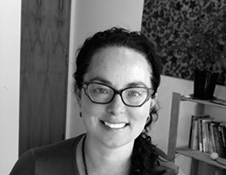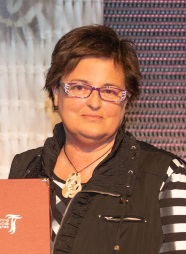Impact assessments have a patchy history of effectively engaging Indigenous communities and providing positive outcomes for their aspirations – University of Otago research is providing a starting point to improve the situation.

Dyanna Jolly.
Used to identify future environmental, social, cultural and other consequences of a current or proposed action, impact assessments provide support to decision-makers on what might happen if a proposed policy or project is implemented. Indigenous impact assessment is an emerging field in this area and has an underdeveloped theoretical foundation.
Lead author Dyanna Jolly, Otago PhD candidate in the School of Geography, says Indigenous communities face a conundrum when preparing impact assessments.
“The impact assessment context for Indigenous groups cannot be dissected into environmental, social or cultural. Rather, Indigenous worlds and approaches comprise seamless interconnections of a multitude of domains.
“These communities face the challenge of navigating the constraints of non-Indigenous planning systems and their own interconnected worldview.
The research, published in Environmental Impact Assessment Review, seeks to contribute a theoretical framework that can be used to guide the development of impact assessment and reinterpret Indigenous engagement in the process.
“Applying Indigenous planning theory to impact assessment provides a way forward for both Indigenous groups and the wider impact assessment community.
“Re-imagining impact assessment in this way requires a restructuring of the power association between western models of impact assessment and Indigenous impact assessment to a new relationship of autonomous and parallel knowledge.”
Ms Jolly says there has been a steady shift from Indigenous communities merely participating in impact assessment, to them carrying out their own assessments.
“However, there is a need for appropriate theory to guide practice and conceptualise the relationship between Indigenous impact assessment and proponent-led impact assessment. The starting point matters, and we lend an Indigenous voice to this conversation.”
The research also establishes the theoretical framework to evaluate how far cultural impact assessments in Aotearoa New Zealand go to deliver outcomes manawhenua would define as positive.
“Cultural impact assessments are used by iwi and hapū to identify the effects of a proposed development themselves, and are commissioned, most often, by resource consent applicants to meet Resource Management Act requirements to address cultural values and effects as well as certain specified Māori interests.
“We know that manawhenua are investing significant time and effort into cultural impact assessments, but question to what extent are these efforts influencing decisions and subsequent resource use in a way that meets Māori aspirations,” Ms Jolly says.
She hopes the research will stimulate policy makers and the wider planning community, in Aotearoa New Zealand and internationally, to see Indigenous impact assessment as one of a series of planning tools.
“Here in Aotearoa New Zealand, we hope to inspire policy makers to think about cultural impact assessment as part of our collective treaty obligations across environmental, social, health, cultural and other domains and informed by Māori knowledge and prepared according to Māori process, rather than an exercise in extracting information to be integrated into or a subset of other forms of impact assessment as the 'cultural' domain.”

Professor Michelle Thompson-Fawcett
Co-author Professor Michelle Thompson-Fawcett, of the School of Geography, believes this will not only improve practice but empower communities.
“In Aotearoa New Zealand, we see this research supporting iwi and hapū to ask questions of cultural impact assessment and make informed decisions about future use, including what it means or could mean to practice Indigenous impact assessment here.”
Publication details:
Enhancing Indigenous impact assessment: Lessons from Indigenous planning theory
Dyanna Jolly, Michelle Thompson-Fawcett
Environmental Impact Assessment Review
https://doi.org/10.1016/j.eiar.2020.106541
Bio for Dyanna Jolly:
Dyanna Jolly is from Whitebear First Nations in Saskatchewan, Canada. She was adopted into the Kakakaway Shepherd Maxie family as a child and raised with a strong sense of connection and belonging to land and community. In 2003, after completing a Natural Resource Management degree at the University of Manitoba, Dyanna was awarded an internship at the Centre for Māori and Indigenous Planning at Lincoln University. She has since worked for iwi and hapū for many years on resource management matters. She is currently completing her PhD at the University of Otago.
For more information, contact:
Dyanna Jolly
School of Geography
University of Otago
Tel +64 3 329 5985
Email dyjolly@witaskewin.co.nz
Professor Michelle Thompson-Fawcett
School of Geography
University of Otago
Tel +64 3 479 8762
Email michelle.thompson-fawcett@otago.ac.nz
Find an Otago expert
Use our Media Expertise Database to find an Otago researcher for media comment.
